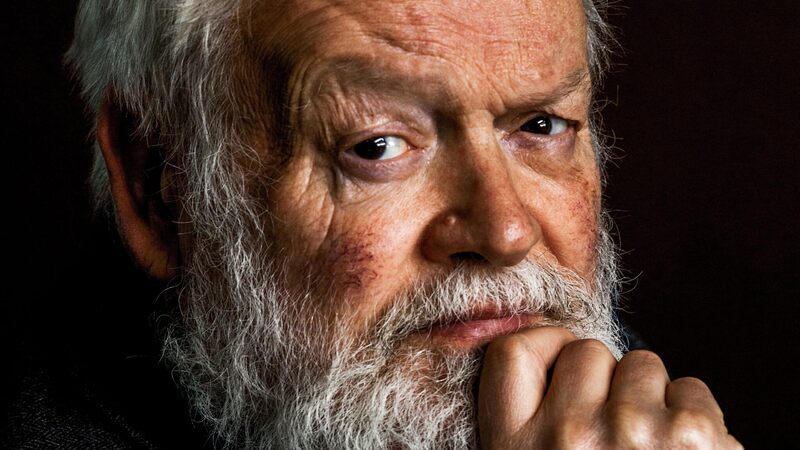You are viewing your 1 free article this month. Login to read more articles.
National Book Lovers Day 2024: the books The Bookseller news team love most
Every year on the 9th August, National Book Lovers Day is celebrated globally. This year it happens to fall on a Friday, which means it is the perfect time to crack open a new book.
It’s a bit of a mystery who decided that today was the day to celebrate reading books, but here at The Bookseller we need no excuse. Having said that, picking a favourite book is impossible; there are far too many to choose from. We’re always happy to share the books we love, however, even if they are only the top of a towering pile.
The news team has each shared two books – one contemporary and one classic – with a brief summary and explanation as to why they are among the best-loved on our shelves. Share your own picks in the comments or on social media.
Maia Snow, news editor
Contemporary pick
Station Eleven by Emily St John Mandel (Pan Macmillan, 2015)
What’s it about?
Set 19 years after the global “Georgia Flu” pandemic which wipes out most of humanity, the novel follows a group of survivors known as Travelling Symphony, as they perform Shakespeare, remember the before-world and risk everything to protect their found family.
Why do we love it?
It is like no other dystopian novel out there, as it provides a hopeful view of a future where humanity does not fall into Mad Max-style chaos following the end of the world. Instead, it shows how art will always survive even in the darkest of times, and ultimately that people are good. The timelines jump seamlessly between the night of The Collapse, and the present day, with sections of the Shakespeare plays scattered throughout. It is a beautifully written book, crossing from some of the softest imagery to some of the more unnerving concepts (see: the airport) ever written, that will stay with the reader a long time after the book is finished.
Classic pick
Emma by Jane Austen (John Murray, 1815)
What’s it about?
The novel centres on Emma Woodhouse, a precocious young woman whose misplaced confidence in her matchmaking abilities leads to many romantic misadventures, while she is unable to see her own perfect match right in front of her.
Why do we love it?
Emma is the original unlikeable heroine, especially set at a time when women should be quiet and inherently likeable. Austen’s earlier leads, including Elizabeth Bennet, were more aspirational characters for readers, but Emma was completely different. Nowadays, controversial female lead characters are much more common (see: Coco Mellors, Sally Rooney, Eliza Clark’s heroines) but Emma was groundbreaking in 1815. Austen set a precedent that women do not have to be perfect to be the lead, but also gave her incredible character development throughout. It is also a very funny book that will make readers cringe and sigh but ultimately, despite her flaws, find themselves rooting for Emma to see the truth directly in front of her, in the form of Mr Knightley.
Melina Spanoudi, reporter
Contemporary pick
In the Dream House by Carmen Maria Machado (Serpent’s Tail, 2020)
What’s it about?
It explores psychological abuse in a queer relationship and how it shatters a person’s life, with each chapter holding up and exploring a piece of that life. It’s about charisma, love and desire, as much as it is about what happens when all of these things dissipate.
Why do we love it?
The writing is lyrical without glossing over anything. It’s also written in vignettes that make it highly readable, despite exploring such a painful and heavy subject. It tests, bends and expands the possibilities of the memoir. I will never stop thinking about this book.
Classic pick
To the Lighthouse by Virginia Woolf (Hogarth Press, 1927)
What’s it about?
It tells the story of the Ramsay family and their visits to the Isle of Skye in Scotland, but it’s really a book about creativity, relationships and time. Rich with personal and national history, it is said to have some autobiographical elements linked to Woolf’s own life.
Why do we love it?
It’s a short book that contains so much of life among its pages. There are many sentences that ring in your head long after you’ve finished reading it. This is Woolf at her best, exploring the complicated nature of familial relationships and the boundaries of the self. The First World War haunts the narrative and its characters, but it does not define them or their experiences. I re-read this book during the summers I would fly home from university, and when I open my copy today, sand from the islands of Andros and Syros falls out and reminds me of that time.
Katie Fraser, staff writer
Contemporary pick
Sabriel by Garth Nix (Hot Key Books, 1995)
What’s it about?
The first instalment in Nix’s Old Kingdom series follows young charter mage Sabriel who must discover what happened to her father, the Abhorsen, a powerful necromancer tasked with keeping the dead at bay.
Why do we love it?
It is hard to overstate the impact Sabriel has had on my life. Since first reading it as a child, I have repeatedly come back to Nix’s magisterial worldbuilding, utterly unique magic system and cast of courageous characters. It is thrilling, scary and completely transportive. Once you enter Nix’s Old Kingdom you will not want to leave. There is also a taciturn cat named Mogget who may or may not be an ancient being bound by the magic of the Abhorsen with questionable loyalties. Sabriel is a young mage and warrior, who has inherited the birth rite of her bloodline – to eventually become the Abhorsen and protect the Old Kingdom from the ravages of evil necromancers and the wraith-like beings they bring back from the dead. Sabriel is a novel about finding your place in the world and how to survive when the people you love, and the truths you hold to be fact are taken away. This is, for me, a canonical work in the genre and one I shall continually re-read throughout my life.
Classic pick
The Hobbit by J R R Tolkien (HarperCollins, 1937)
What’s it about?
Join the disgruntled yet adventurous hobbit, Bilbo Baggins, as he journeys with 13 dwarves and the wizard Gandalf to reclaim The Lonely Mountain, currently presided over by the rather fearsome dragon, Smaug.
Why do we love it?
The joys of home and comfort, the touchstones of life as a hobbit, resonate with many of us but so too does the call of adventure, of discovering new lands. Tolkien marries these two desires exquisitely in the adventure of the slightly hapless and brave Bilbo. The Hobbit proves Tolkien is a master of the genre. In a relatively small book, we are introduced to the hobbits of the shire, the dwarves of Erebor, the elves of the woodland realm, some rather nasty spiders and, of course, the cryptic wandering wizard Gandalf and more. The Hobbit is a masterclass of fantasy fiction and will endure as a tale of the ages. I have a very battered copy I read annually on the family camping trip as I sought out the call of the wild and Bilbo’s yearning for home comforts.
Matilda Battersby, senior reporter (part-time)
Contemporary pick
Soldier Sailor by Claire Kilroy (Faber, 2023), shortlisted for the Women’s Prize
What’s it about?
Written in the second person, it is an account of early motherhood by an unnamed narrator (Sailor), who addresses her young son as Soldier throughout.
Why do we love it?
It is the most accurate account of motherhood I’ve ever read, with all the time-warping, identity-shifting, frustrations that rub up against the arrival of a new and all-consuming focus and object of love. While any parent will nod along with increasing recognition at each visceral example of domestic drama, from the battle to get them to eat, to an en famille trip to IKEA, it is the disorientation of new motherhood and the way the narrator grapples with her sense of self, her role in society and the battleground that has become each societally minimised (but, actually huge) act of care and responsibility. The growing unease that threads through this deeply intimate novel makes it a compulsive read.
Classic pick
The Go-Between by L P Hartley (Penguin, 1953)
What’s it about?
In the year 1900 and a 12-year-old boy, Leo Colston, is invited to spend the summer with his upper-class school friend. Leo observes the peculiarities of an English aristocratic family and is used by one of its members to deliver illicit letters.
Why do we love it?
Famous for the first line “The past is a foreign country; they do things differently there”, this novel is a masterclass in narratorial knowing and not-knowing, creating the sort of breathless tension that can only be achieved through a gradual loss of innocence. Told by Leo, now in his sixties, it uses the diaries and memories of his boyhood to describe the sun-bleached weeks of an English summer when he is exploited and manipulated by his friend Marcus’ family thanks to his “social inferiority”. This painfully naive boy learns about sex, suicide and lies. I read it as a teenager and remember being particularly struck by the passage where this powerless child tries to reclaim something of himself by using a deadly nightshade tree to perform a spell. It is the kind of book you can read again and again over the course of your life.
















